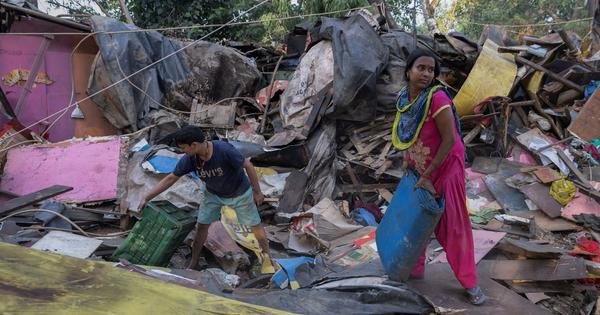Building a Better Delhi: Urban Growth with Fair Policies

Delhi has seen many homes torn down in poor areas recently. The Delhi High Court ordered this to clear illegal buildings near major drains. Officials say it’s needed for monsoon safety. But it makes us think about how we build our cities.
In Jangpura’s Madrasi Camp, over 350 homes were removed to fix the Barapullah drain. 155 families lost their homes with no new place to go. In Batla House, more than 100 homes were also torn down. People said they didn’t get enough warning. Plans to help them were unclear. Yet, the Supreme Court allowed it.
These actions aim for a safer, greener city. But they make us ask: Who is the city being built for? Why do poor areas keep growing?
Problems in City Growth
India’s cities are growing fast. Often, too fast for proper housing and roads. Poor areas house nearly 17% of city people. This shows big problems like not enough homes, people moving from villages, and few affordable houses.
The government says we’re short over 18 million homes for the poor.
Illegal buildings are a problem. But solutions must be fair and follow rules. They need legal protection. Court cases like Olga Tellis vs. Bombay Municipal Corporation (1985) and Sudama Singh vs. GNCTD (2010) say people must be surveyed, consulted, and helped to move.
But this doesn’t always happen. Poor people often lose homes with no options. This causes lost jobs, health problems, and kids missing school.
Local government should include people. The law says groups like ward committees must have people’s voices. But most states ignore this. So, people can’t shape their own neighborhoods.
Without a say in planning, local groups can’t fix the real problems. These groups must become active places for people to plan together. They should make sure everyone’s voice is heard in city growth.
Better Ways to Grow Cities
India’s cities need more than quick fixes. Bulldozers don’t solve the real problems. We need caring leaders, good planning, and strong systems. At Janaagraha, we made a city-systems plan. It says planning, money, government, and people must work together to fix real problems, not just what we see.
Odisha’s Jaga Mission shows how. Since 2017, it has given land rights to over 100,000 families. It also improves poor areas and includes people in planning. The world has praised this work.
Similar work in Tamil Nadu, Maharashtra, and Kerala shows how land rights and good planning help. They make strong, working neighborhoods. As India grows, it must focus on big changes that put fairness and respect first.
Fair City Policies
As cities grow, we need fair and lasting policies. Here’s what we should do:
- Evictions must follow rules. This means surveys, checking who lives there, clear warnings, legal help, and plans to relocate. These are laws and build trust.
- States should improve poor areas where they are. This ties land rights to better services. Odisha’s Jaga Mission shows it works. Starting with people on public land can limit moving and use what’s already there.
- We need big changes in housing. Planners must set aside land for poor people’s homes. They should use public land near buses and trains for shared or rental housing.
- The Model Tenancy Act can help the rental market. If done right with protections, it can limit poor areas.
- Cities must bring back local groups that include people. Ward committees should have people from poor areas and women’s groups. This makes plans real and fair.
- City policies must include workers’ rights. They keep cities running. We must protect their homes, services, and movement. Things like food cards and health plans should work everywhere.
These steps move us from quick fixes to real inclusion. They make legal, green, and building goals fair. Poor areas and exclusion come from bad planning, weak systems, and unclear rules. These problems need a full city-systems view that puts fairness in design and choices.
Good cities see poor people as real citizens. They replace quick fixes with lasting, fair changes. India must build its city future on the promise of welfare for all. This needs responsive and clear systems.
Karthik Seshan is senior manager of policy and insights at Janaagraha. Views are personal.



